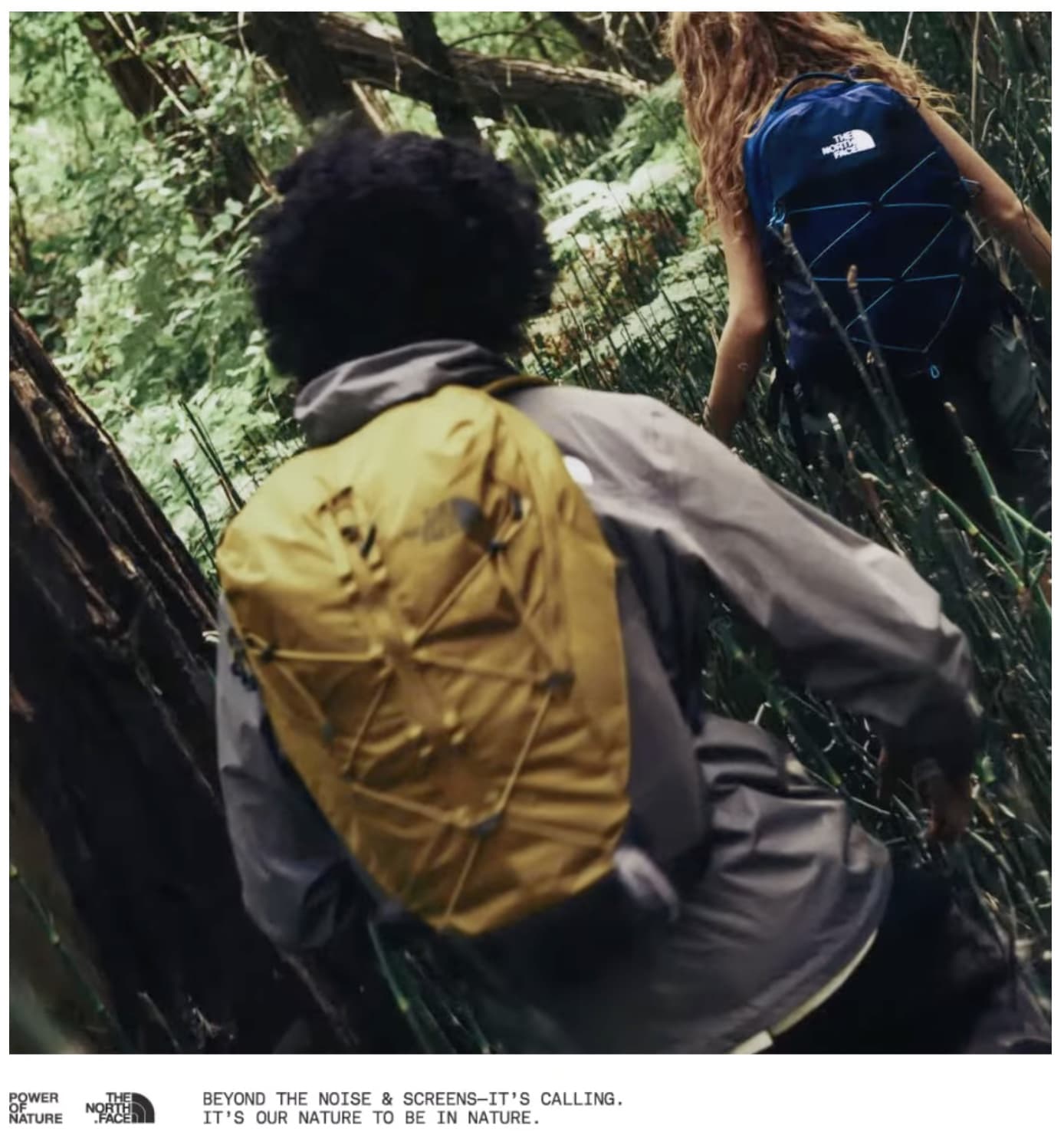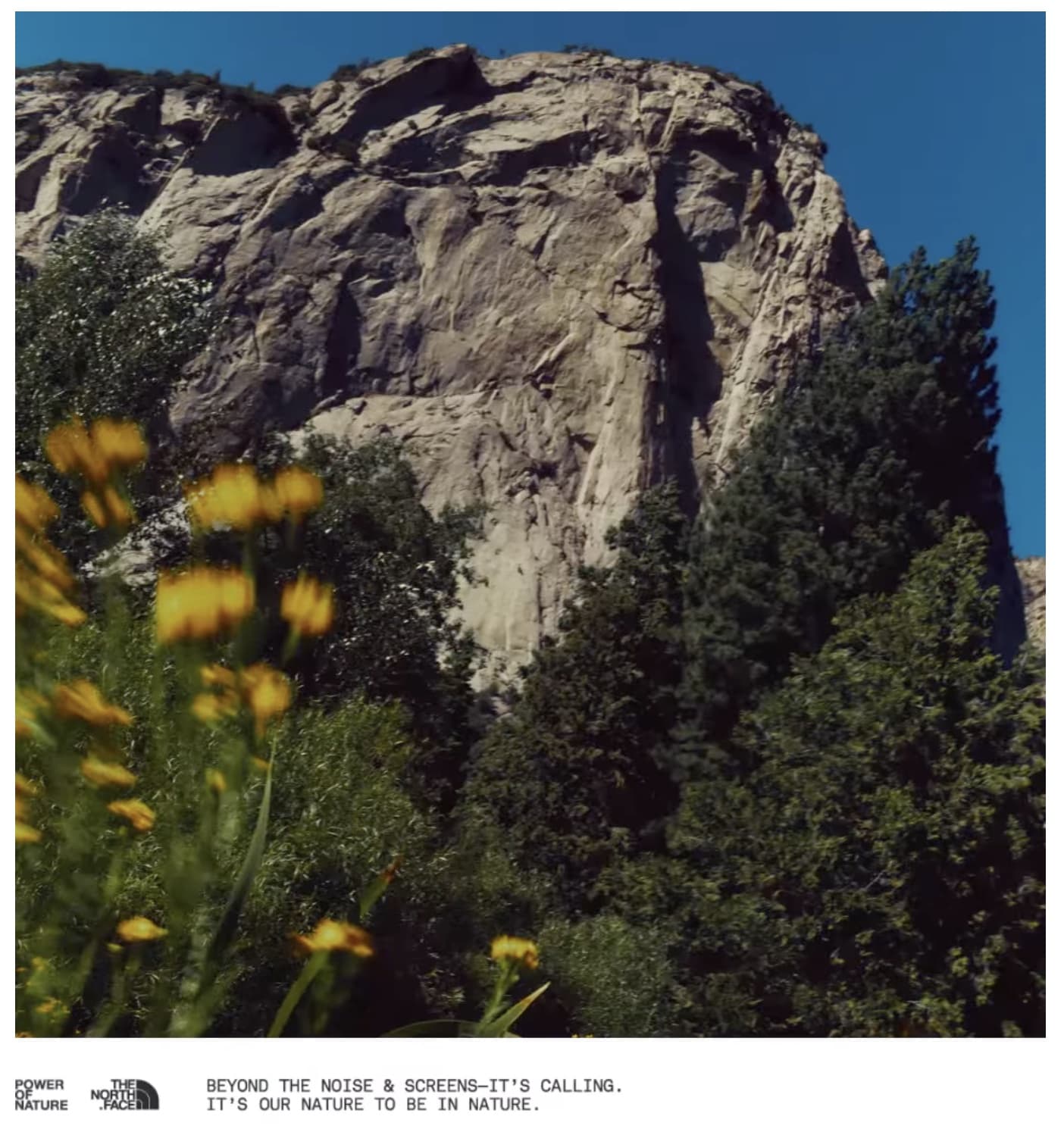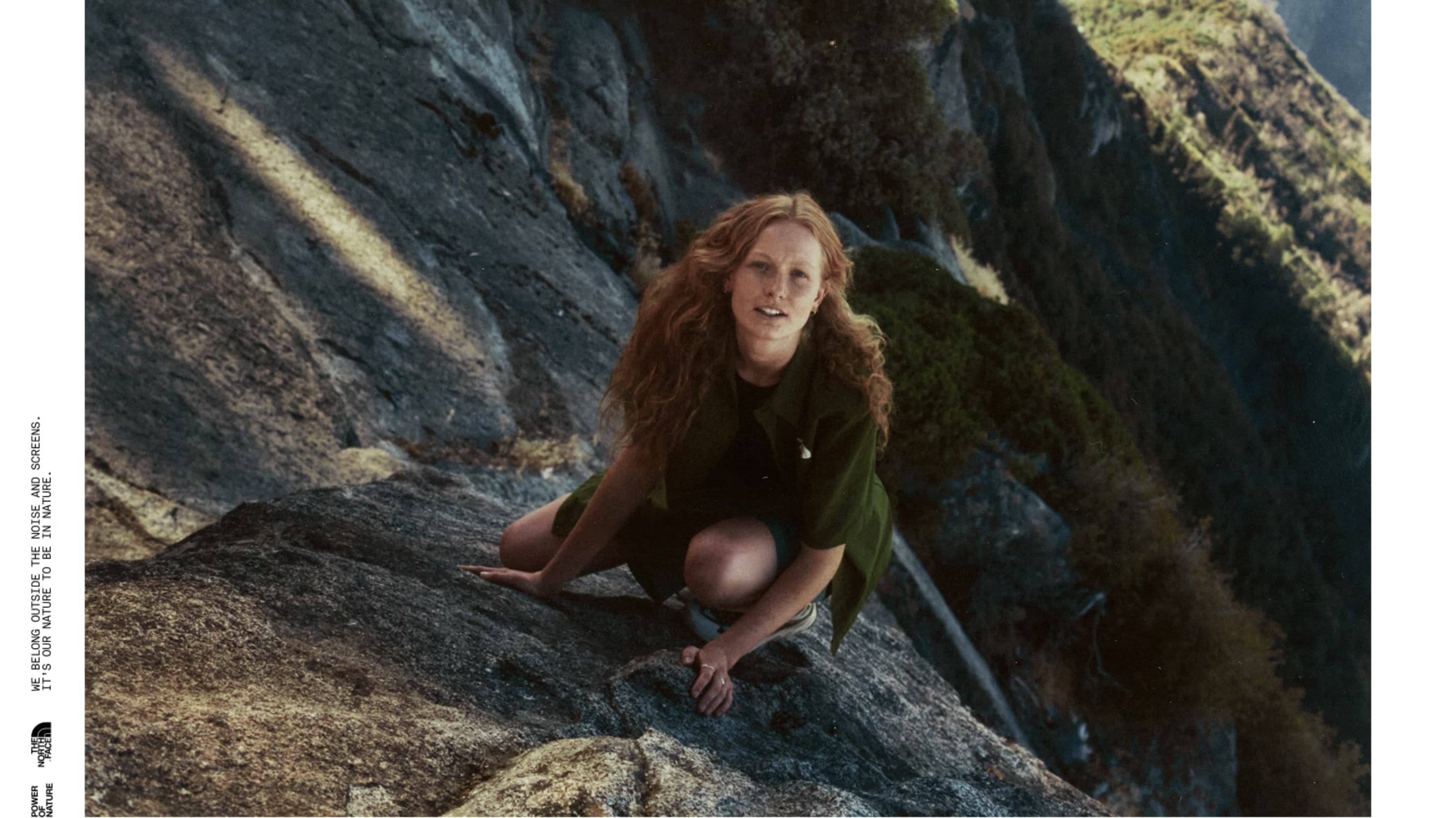Power of Nature seeks to close the “nature gap” with a $1M investment and programming designed to bring young people into the outdoors
The North Face is launching Power of Nature, a new global platform dedicated to reconnecting the next generation with the outdoors. Announced this week, the initiative arrives with an initial $1 million investment from the VF Foundation in partnership with the National Park Foundation, aiming to expand access to nature for youth at a time when children in the U.S. average just seven minutes of unstructured outdoor play a day. The effort reflects both an urgent social need and a growing industry trend: brands are moving beyond traditional sustainability messaging to address cultural access to nature itself.
The program will begin with a focus on U.S. national parks, with funding directed toward enabling more than 300,000 young people to engage with park programming during the 2025–26 school year. That includes classroom resources, in-person and virtual field trips, and first-time experiences for students in underrepresented communities. As the official nonprofit partner of the National Park Service, the National Park Foundation will oversee delivery, underscoring how public-private partnerships are increasingly central to expanding access to outdoor education. According to Caroline Brown, global brand president of The North Face, the initiative is designed to ensure young people “build lifelong connections to the natural world” rather than view outdoor recreation as a luxury.
The brand plans to activate the platform through its own retail network and athlete ambassadors, with further expansion into international markets in 2026. For The North Face, owned by VF Corp., the move builds on a six-decade history of supporting public lands, from co-founding The Conservation Alliance in 1989 to launching the Explore Fund in 2010. But Power of Nature represents a strategic shift toward tackling the cultural barriers of access, particularly for younger generations whose relationship with the outdoors has been reshaped by urbanization, technology, and widening inequality.
Looking ahead, the initiative signals how outdoor brands are recalibrating their influence: not only as purveyors of technical gear but as cultural intermediaries ensuring the outdoors remains a shared public space. In framing access to nature as a right rather than a privilege, The North Face is positioning itself at the nexus of youth culture, environmental stewardship, and brand responsibility—an intersection that could shape consumer expectations of the category for years to come.



